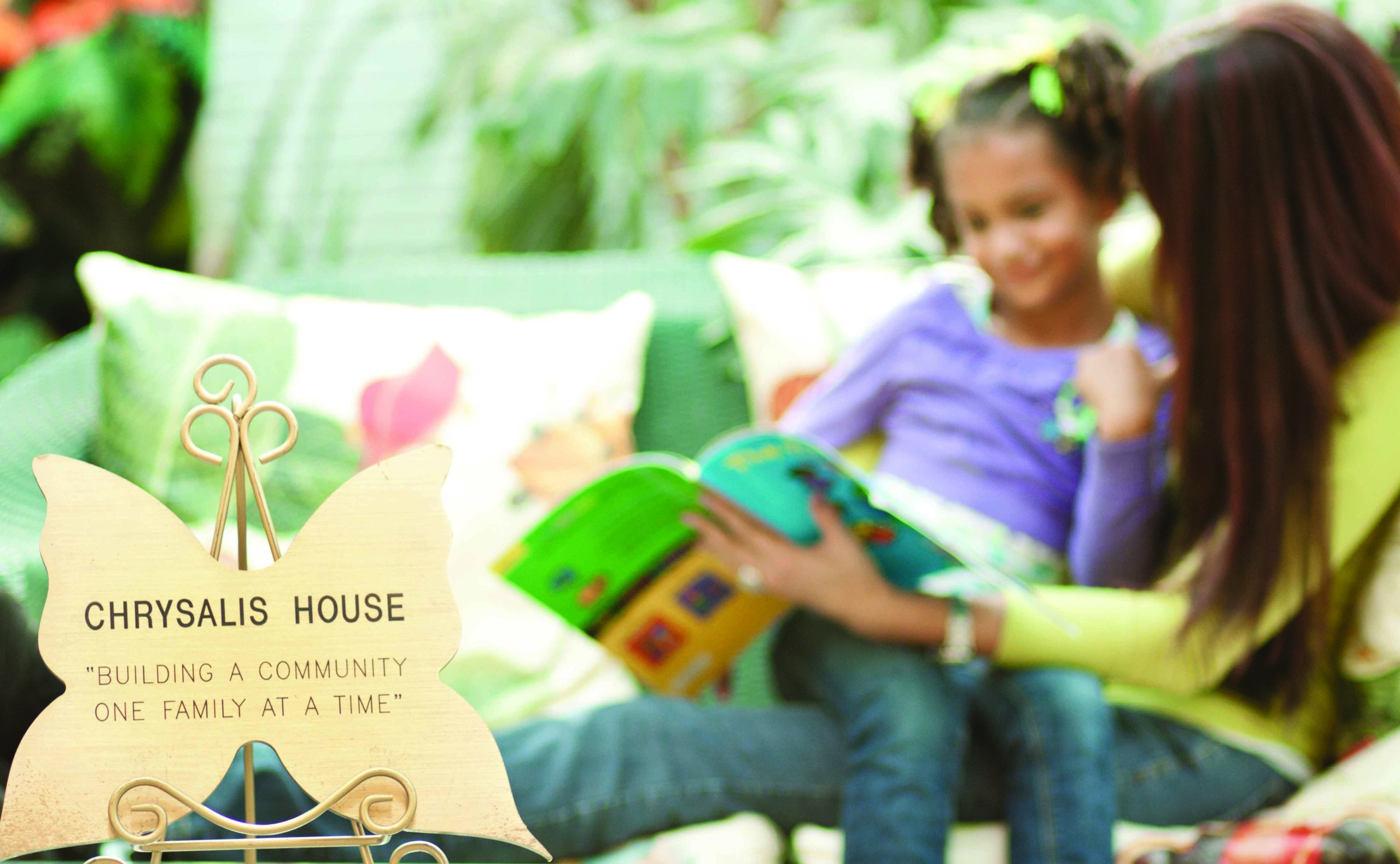 As Kentucky’s oldest and largest licensed substance use disorder treatment program, the Chrysalis House has helped thousands of women transform their lives since it opened in 1978.
As Kentucky’s oldest and largest licensed substance use disorder treatment program, the Chrysalis House has helped thousands of women transform their lives since it opened in 1978.
The Chrysalis House was the first residential treatment program in Kentucky that allowed women to keep their infants and toddlers with them while in treatment. Today, it is a comprehensive agency with multiple residential facilities and a multipurpose community center.
“Our family-centered treatment approach focuses primarily on the individual woman but addresses family relationships as an integral part of the treatment process,” said Kama McKinney, executive director.
Individualized treatment plans are designed to help addicted women gain the skills to achieve their physical and mental health goals, overcome past trauma, learn parenting skills, work on interpersonal relationship skills, complete their education and find employment as well as safe and affordable housing. A multidisciplinary team—including a medical doctor specializing in addiction, therapists, a psychiatrist, registered nurses, case managers, peer support specialists, job readiness and educational services staff, and community ancillary service providers—works with each woman and her family to develop a comprehensive treatment plan.
This past year, Chrysalis House admitted 160 pregnant or parenting women into residential treatment. Of those who successfully completed residential treatment, the average stay was 160 days, McKinney said.
McKinney shared more about the addiction recovery center as part of this month’s Nonprofit Spotlight.
The Lane Report: How did the Chrysalis House get started?
Kama McKinney: In the late 1970s, there were several halfway houses for men, but none for women who were recovering from alcoholism. In 1978, Chrysalis House (formerly known as Lindon House), in partnership with Volunteers of America, opened Kentucky’s first six-bed halfway house for women on the grounds of Eastern State Hospital. In 1981, Chrysalis House approached United Way of the Bluegrass for funding assistance. Although favorable toward the agency’s mission and program delivery, United Way did not like the fact that Chrysalis House did not own its facility. Chrysalis House board members started an extensive capital campaign to secure funding to purchase a facility. In 1984, Chrysalis House moved into its first agency-owned facility.
Today, Chrysalis House consists of three licensed residential facilities for pregnant and parenting women and their children; an 18,000-s.f. community center housing an Early Head Start program in partnership with the Community Action Council for children ages 6 months to 3 years; a licensed outpatient treatment program providing group and individual therapy, case management and peer support; and a 40-unit certified recovery housing apartment complex for women completing residential treatment and their families.
TLR: How do you get people involved in your mission?
KM: There are many reasons volunteers are important, but one of the most important reasons is to help people recognize that the women we serve are not bad people and are here pursuing a positive change in their life. They are strong, they are courageous, and for various reasons—including childhood and adult trauma, long family histories of substance use and addiction, and other unfortunate circumstances—have lost control of their lives and choices.
Community support is integral to the success of individuals pursuing a life in recovery. They need to feel accepted, welcomed and valued in their communities so they can fully integrate, become involved in their children’s school activities without fear of judgment or rejection, obtain employment with a wage that can sustain a family and engage in community recreational and social activities feeling that they belong there just as much as everyone else. We hope that volunteer opportunities at Chrysalis House help to create that community acceptance and understanding that in turn helps to sustain recovery.
TLR: What’s a recent achievement you are proud of?
KM: Since the beginning of the pandemic, Chrysalis House has never stopped admitting women into treatment. We had to implement new health and safety guidelines but we knew from the beginning that closing our doors would not be an option. We even turned our children’s after-school and summer program into a NTI (nontraditional instruction) learning program. We hired tutors and assisted children from K-10th grade with their new remote learning platform.
In November 2020, Chrysalis House’s Serenity Place Recovery Housing Apartments became the first in Kentucky to receive Kentucky’s National Alliance for Recovery Residences (NARR) Certification. Recovery residences provide safe, healthy, abstinent living environments based on a social model of recovery.
Integrating safe and affordable housing with outpatient and recovery support services is another tool available in the Chrysalis House continuum of care to enhance the likelihood of women achieving successful long-term recovery and breaking the cycles of addiction, poverty, crime and lack of educational pursuit that have plagued these families for generations.
TLR: What is something we may not know about Chrysalis House?
KM: We are not only treating each woman’s addiction and mental health needs but also providing educational and job-readiness classes, safe and affordable housing options, dental and prescription assistance, child care, and infant essentials such as diapers, wipes, bottles, etc. We have formed partnerships and maintain formal agreements with over 70 community agencies to assure availability of needed resources. Sharing resources enhances each organization’s ability to effectively serve the population.



















